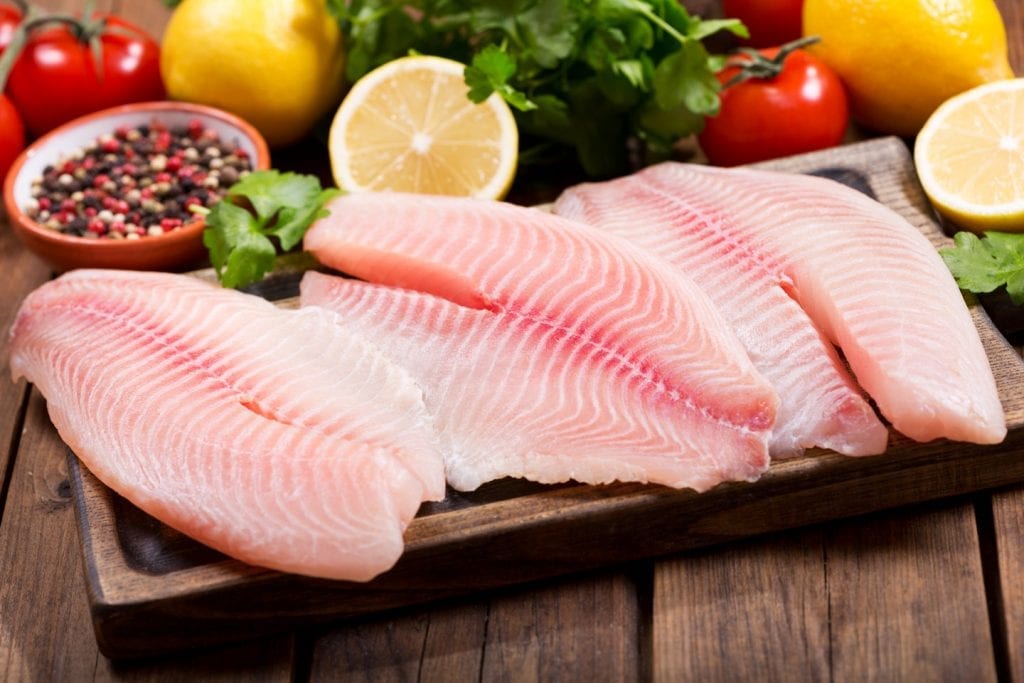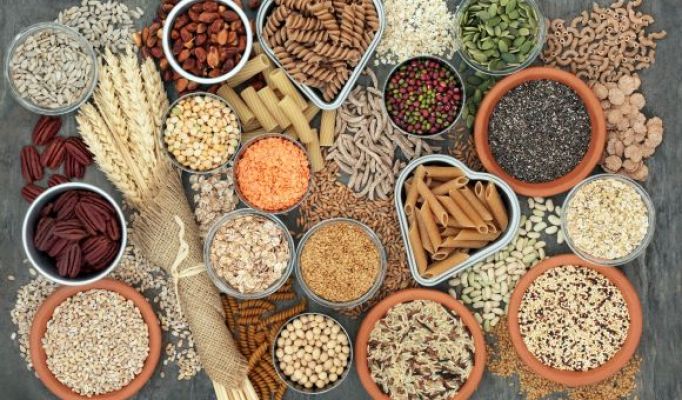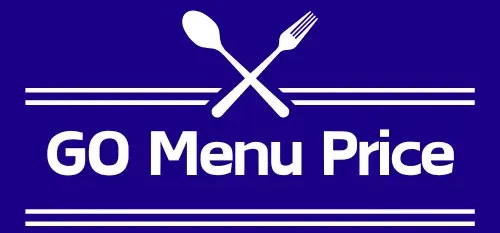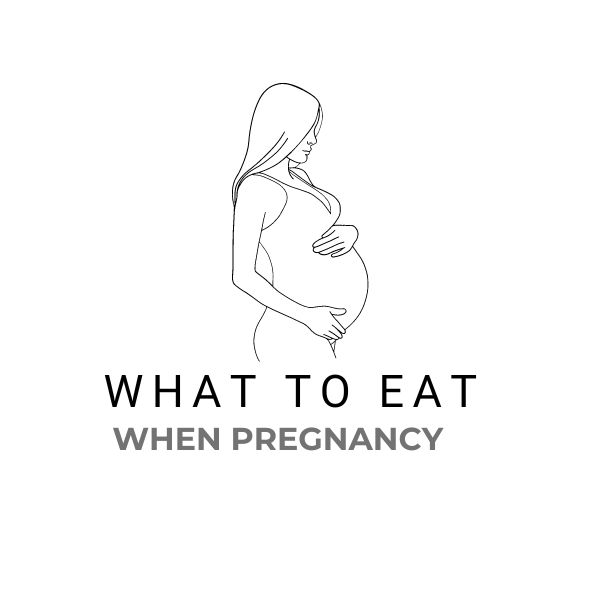Expecting Pregnancy, the foods you choose to eat are more important than ever. Proper nutrition supports both the health of the mother and the growing baby, making it crucial to know what to eat and what to avoid during pregnancy. This comprehensive guide will walk you through everything you need to know about prenatal nutrition, ensuring that you and your baby are getting the best start possible.
click here for more
What To Eat
1. Fruits And Vegetables
There are a couple of food groups out there that some have dubbed the “best pregnancy foods”, and a lot of these can be fairly complicated. However, one of the foods that can greatly improve your health, especially while expecting or expecting to expect is fruits and vegetables. Fruits and vegetables are naturally packed with vitamins and nutrients that keep you healthy, but one type of the most important things you should be consuming is Vitamin B Folate. This Folic acid is essential in producing prenatal vitamins that are essential if you’re trying to conceive and will also reduce the chances of neural-tube birth defects. Vegetables that are high in Vitamin B Folate include Brussel sprouts, broccoli, and asparagus.
2. Fish

Fish is one of the best sources of omega-3 fatty acids which certain scientists have said have a positive effect on fertility. It’s best to choose fish that are rich in these acids such as tuna, salmon, tilapia, and catfish. However, there are some fish out there that contain high levels of mercury that should be avoided as it can have a negative effect on fertility and pregnancy. These fish include swordfish, shark, and marlin.
3. Whole Grains

Women trying to conceive and those already expecting need to have a diet very rich in nutrients. This is to ensure that your health and the health of the developing child will remain in the best condition possible. Whole grains are a great way of getting this nutrient, and they’re also fairly easy to make and digest. Oatmeal, whole-grain cereal, whole-wheat bread, and brown rice are highly recommended as they are great sources of nutrition.
Things To Avoid
1. Alcohol
If you’re already pregnant, you should already be avoiding and abstaining from alcohol as that can do a lot of damage to your health and your child’s health. But even if you’re just trying to get pregnant, alcohol can be very bad for you. An occasional beer or a small glass of wine won’t really hurt your chances, but regular consumption of alcohol is a big no-no. Aside from that, you can never really be 100% sure that when you’re ovulating or when you actually conceive, so it may be best to completely avoid alcohol.
2. Trans Fats
Trans fats are found in a lot of processed foods and numerous studies show that they have a relation to infertility. This goes for both men and women, as there are studies that suggest that these trans fats may have a correlation to ovulation problems in women and a lower sperm count in men. These fats are also generally unhealthy so it’s best to avoid them if you are already expecting.
3. Caffeine

Thre is evidence out there that suggests very high consumption of caffeine can lead to some fertility problems. While a cup of coffee every now and then won’t hurt you, the general consensus is that it’s best to keep caffeine consumption to a minimum if you’re expecting pregnancy. No one really knows what exactly caffeine’s relationship to infertility is, but to be on the safer side of things it’s would be best to greatly lower your intake or cut it out altogether when trying to get pregnant.
The Importance of Prenatal Nutrition
The foundation of a healthy pregnancy is a well-balanced diet rich in essential nutrients. These nutrients not only support the development of your baby but also help you stay strong and healthy during the physical demands of pregnancy. Vitamins, minerals, protein, and fats all play specific roles in the growth and development of the baby, and eating the right foods can help minimize complications during pregnancy.
It’s essential to get enough of certain nutrients, such as folic acid, iron, calcium, and omega-3 fatty acids, as these are critical for the development of your baby’s organs, bones, and nervous system.
Foods to Include in Your Pregnancy Diet
To provide your body and baby with essential nutrients, focus on consuming a variety of nutrient-dense foods. The following are some of the most important foods to include:
Leafy Greens
Leafy green vegetables such as spinach, kale, and broccoli are rich in folic acid, which helps prevent neural tube defects in the developing baby. These vegetables are also high in fiber, iron, calcium, and vitamins A, C, and K.
Lean Meats
Lean meats like chicken, turkey, and beef are excellent sources of protein and iron. Protein is essential for the growth of the baby’s tissues, while iron helps prevent anemia, a common issue during pregnancy.
Whole Grains
Whole grains, including brown rice, quinoa, and oats, provide a good source of fiber and essential nutrients such as B vitamins and magnesium. These help regulate digestion, which can slow down during pregnancy.
Dairy Products
Dairy products like yogurt, milk, and cheese are rich in calcium and vitamin D, crucial for the development of your baby’s bones and teeth. Opt for low-fat or fat-free versions to get the nutrients without excess calories.
Fatty Fish
Fish such as salmon, sardines, and trout are packed with omega-3 fatty acids, which are essential for your baby’s brain and eye development. These fish also offer a good source of vitamin D, which is necessary for bone health.
Foods to Limit or Avoid During Pregnancy
While many foods are beneficial, there are some you should limit or avoid altogether during pregnancy due to potential risks.
Raw or Undercooked Meat and Fish
Raw or undercooked meats and fish may contain harmful bacteria or parasites like listeria or toxoplasmosis, which can lead to severe health complications for both the mother and baby. Always ensure that meat is thoroughly cooked, and avoid foods like sushi that contain raw fish.
Fish High in Mercury
Certain fish, such as shark, swordfish, king mackerel, and tilefish, contain high levels of mercury, which can harm your baby’s developing nervous system. Stick to low-mercury fish like salmon and shrimp.
Excessive Caffeine
While small amounts of caffeine are generally safe, it’s best to limit your intake to 200 milligrams per day (about one 12-ounce cup of coffee). Too much caffeine can increase the risk of miscarriage or premature birth.
Alcohol
There is no known safe amount of alcohol during pregnancy, and even small amounts can lead to fetal alcohol syndrome. It’s best to avoid alcohol entirely throughout the duration of your pregnancy.
Unpasteurized Dairy and Juices
Unpasteurized dairy products and juices can carry harmful bacteria such as E. coli and Listeria, leading to severe infections. Always opt for pasteurized products to ensure food safety.
Stay Hydrated: The Importance of Water
Drinking enough water is essential during pregnancy. Water helps form the amniotic fluid surrounding the baby, aids digestion, and helps your body absorb essential nutrients. Aim for at least eight 8-ounce glasses of water per day to stay hydrated, and increase this amount if you’re exercising or in a hot climate.
Proper hydration also helps reduce common pregnancy symptoms like constipation, swelling, and urinary tract infections. You can also include other hydrating fluids such as herbal teas and water-rich fruits like watermelon and cucumber.
Food Safety Tips for Pregnant Women
Foodborne illnesses pose a higher risk to pregnant women due to a weakened immune system. Here are a few food safety tips to protect both you and your baby:
- Wash all fruits and vegetables thoroughly to remove potential contaminants.
- Cook meats, poultry, and eggs thoroughly to kill any bacteria.
- Avoid refrigerated, ready-to-eat foods like deli meats and soft cheeses unless they are reheated to steaming hot, as these can harbor harmful bacteria.
- Store leftovers properly and avoid eating perishable foods that have been left out for more than two hours.
Satisfying Pregnancy Cravings Healthily
Cravings are a normal part of pregnancy, but it’s important to balance indulgence with health. If you’re craving something sweet, try swapping sugary treats with fruits like berries, apples, or bananas. For savory cravings, opt for healthier options like nuts, popcorn, or whole-grain crackers.
Craving non-food items like dirt or ice, known as pica, can sometimes indicate a nutrient deficiency. If you experience this, consult your healthcare provider immediately.
Consulting a Healthcare Professional for Dietary Advice
While this guide offers general advice on what to eat and avoid during pregnancy, it’s crucial to consult your healthcare provider for personalized recommendations. Your doctor or dietitian can help you create a tailored pregnancy diet that considers your unique needs, lifestyle, and any pre-existing medical conditions.
Prenatal vitamins are often recommended to ensure you’re meeting your daily nutrient requirements. These typically include folic acid, iron, calcium, and vitamin D, which are all vital for your baby’s development.
Conclusion
The journey of pregnancy is an exciting time, and the food choices you make are vital for your health and the development of your baby. By focusing on a balanced diet, rich in essential nutrients, and avoiding potentially harmful foods, you can support a healthy pregnancy. Remember to stay hydrated, follow food safety guidelines, and consult your healthcare provider for personalized advice.

